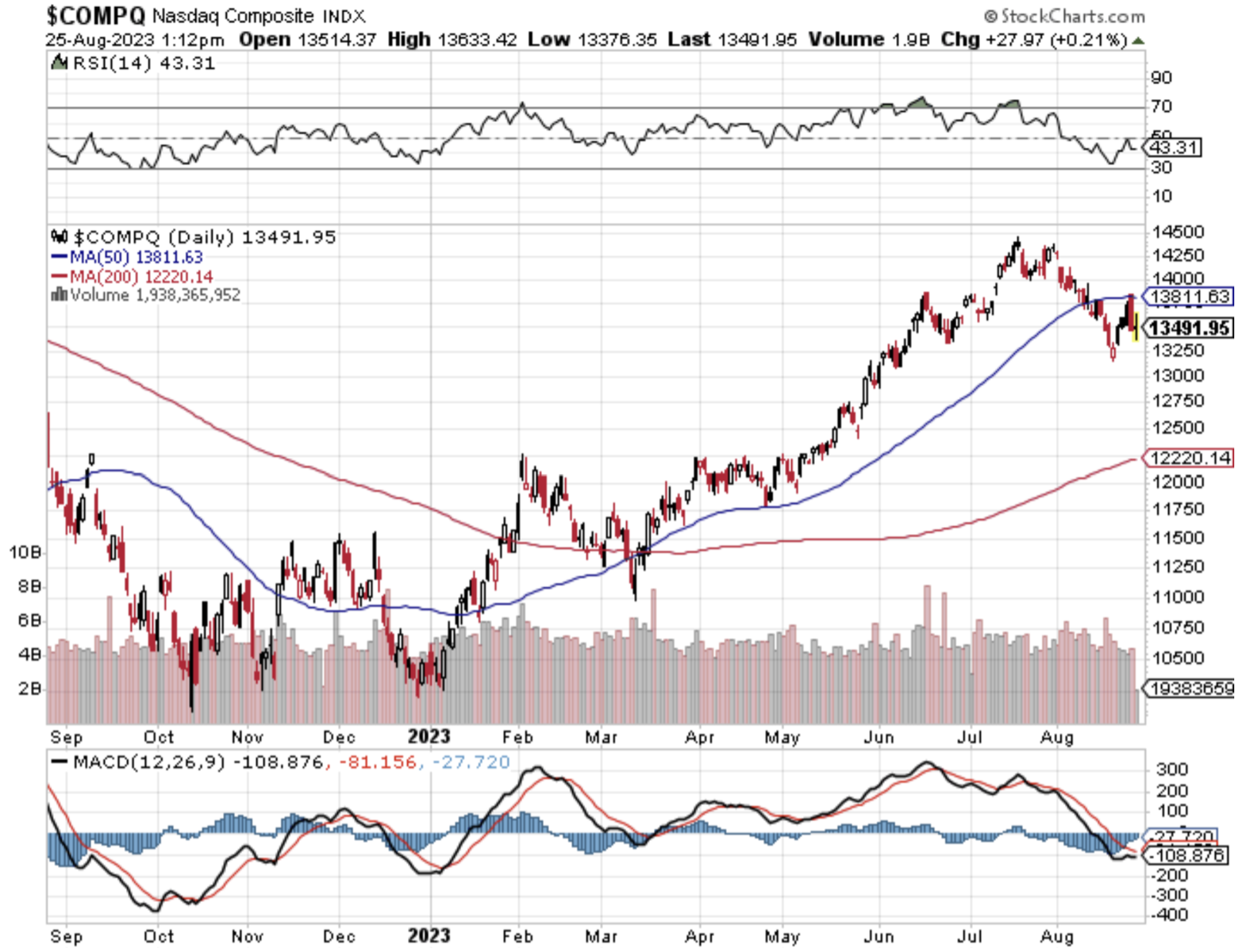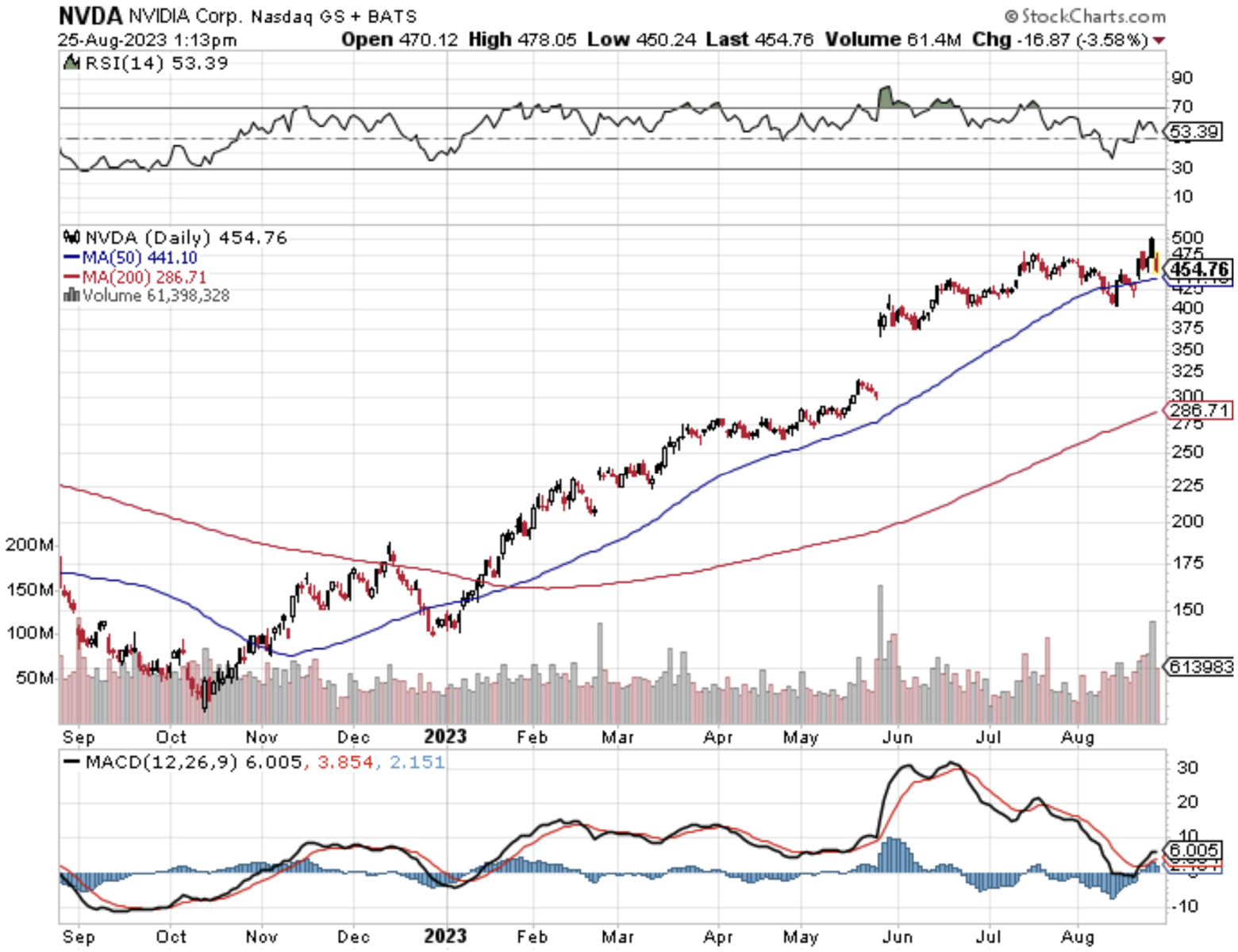Another Low Blow for Tech
The almost four-year “transitory inflation” is a stark reminder that it isn’t smooth sailing yet for tech stocks ($COMPQ) after a glorious first 7 months of the year.
In hindsight, it appears more and more as if the great outperformance of the first 7 months in tech stocks was mainly due to a mean reversion after 2022 another surge helped by Nvidia’s (NVDA) AI hype.
The last 4 months of the year don’t appear as if these two tailwinds will light rocket fuel under tech stocks.
It’ll be harder to make money without those two turbo boosters.
Today tech got even more bad news as Federal Reserve Chair Jay Powell said the central bank is "prepared to raise rates further."
The hurtful part of this for tech stocks is that Powell’s comments absolutely have a knock-on effect to tech products.
Who wants to add that extra layer of anti-viral software protection when the budget is tight?
Powell is narrowing the goalposts for tech companies.
Which Tick-Tock influencer is going to re-up to the better iPhone when they can’t afford it?
According to Reuters, Americans are now paying around $800 per month extra for the same daily necessities they paid for before March 2020.
That is $800 that could possibly go into more tech hardware and software that isn’t.
Powell doubled down on crushing inflation saying it is the “Fed's job to bring inflation down to our 2 percent goal, and we will do so.”
Right away we saw Fed futures expectations adjust to this new information with the “higher for longer” mantra taking hold in reality.
The consensus is now that the first rate cut will be sometime in the summer of 2024 of .25%.
Traders should remember that the first rate cut was priced in at the end of this year just recently.
The Fed has gotten more hawkish lately and that is demonstrably negative for the short-term trajectory of tech stocks.
In 2023, accelerating US economic growth of 2.4% has presented a challenge to the Fed on several levels, with the Fed chair noting the overall economy "may not be cooling as expected."
And the strength of the labor market has been at the center of this challenge.
While monthly job gains have cooled through the summer, Powell said Friday the labor market's rebalancing "remains incomplete."
In turn, wage pressures have moderated.
The Fed really has two problems on its hands as it seeks to induce a recession – full employment and blistering economic growth.
The fact is that the stock market and the economy have handled these itty bitty .25% interest hikes gracefully.
That would hardly be the case if rates were hiked 5% at one time.
Businesses have had time to adjust to the new normal and so has the tech industry by firing a swath of ineffective employees.
The net result of this is bad for technology stocks in the short term, but staving off a recession is also in the interest of the tech sector as well.
I expect tech firms to keep shedding the fat off their business model as we barrel into sink-or-swim times.
There won’t be excess money sloshing around in the system for the foreseeable future and tech bankruptcies should rise.
That doesn’t mean tech stocks will crater, but it does mean many business models need to consolidate before another move up.
The real weak hands will finally get flushed out.
Tapping the debt market because of poor management decisions is now route one to bankruptcy and that hasn’t been the case in technology companies for a long time.



